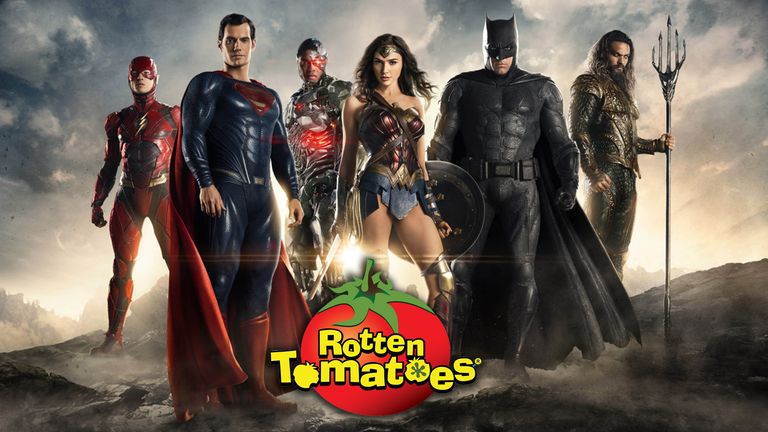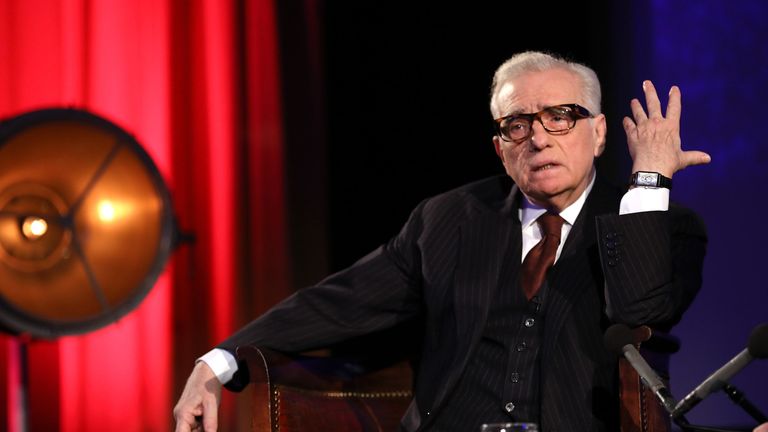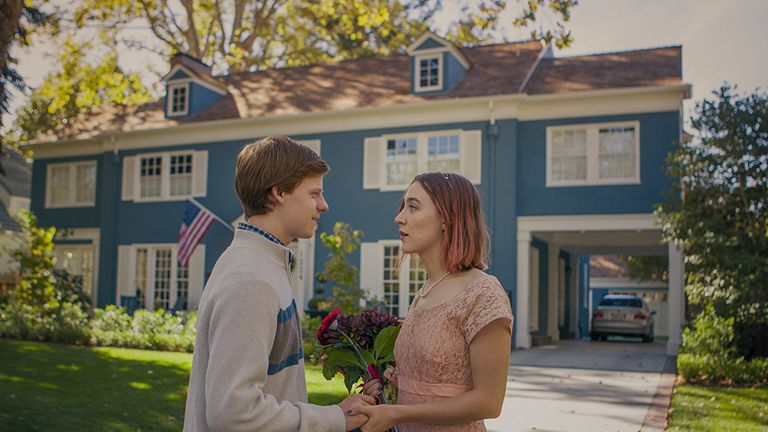Is Rotten Tomatoes really rotten?
The film review aggregator has become the biggest "make or break" voice in the industry, but its own "freshness" is now at stake.
Friday 1 December 2017 15:24, UK
A controversy surrounding Justice League's poor performance has led to questions over the relevance of the popular "tomatometer".
A few days ago, the internet delighted in the latest slice of holiday conspiracy, when Rotten Tomatoes chose to delay reviews for Warner Bros' latest blockbuster until hours before its premiere.
The reason behind it, web conspirators said, was that Rotten Tomatoes was partly owned by Warner Bros (which it is), who didn't want the audience to know exactly how bad the film was to avoid a colossal loss (which they probably didn't).
What Twitter users seem to have missed, is that Rotten Tomatoes had done it before.
Actually, they do it every week, as part of a new-ish Facebook show called See It/Skip It, where two hosts spar over a new film until they finally reveal their previously undisclosed "tomatometer".
That's what happened with Justice League, and A Bad Moms Christmas, rather than a plot to fool audiences into watching a film about decadent progenitors and a lame version of the Avengers.
But the conspiracy made sense to the fans, and the gods of social media seemed to be in line, so some news outlets decided to go along and publish said controversy asking the obvious clickable question: Is Rotten Tomatoes rotten?
The question has been put before, and the famed "tomatometer" is not without its critics.
If you're not familiar with it, the website gives a classification of "rotten" or "fresh", depending on the ratio of positive to negative reviews from registered TV and film critics.
Directors tend to hate it, actors have grown to accept its industry relevance, and several A-listers have even appeared as guests on Rotten Tomatoes weekly video segments.
Martin Scorsese is not one of them.
In October, he gave an interview slamming the website which he believes makes "opening-weekend grosses into a bloodthirsty spectator sport that seems to have encouraged an even more brutal approach to film reviewing".
"Even the name Rotten Tomatoes is insulting," Scorsese added.
That could very well be, but it certainly got his attention.
This week, Greta Gerwig's debut film Lady Bird became one of the strongest Oscar contenders after breaking the "tomatometer", becoming officially the best reviewed film in Rotten Tomatoes' history.
While this is certainly good news for Gerwig and her film, it's a deceitful and misleading headline which gives the impression that Lady Bird is "the best reviewed film of all time" - it isn't.
The way the "tomatometer" works, is that a film gets a 100% score if all of the reviews are positive. Not great, not brilliant - positive.
So imagining that Lady Bird was watched by 500 critics, and those 500 critics all thought it was a 3-star film (a borderline positive review), it would still lead to a 100% on Rotten Tomatoes.
To get a better picture, the film which held the record before it was Toy Story 2.
But still, the record made it to Gerwig, who told Vanity Fair magazine she was "so excited" that her film had broken the record.
But this is the problem with the binary metrics of Rotten Tomatoes. Giving a fresh/rotten rating without context is unfair and does not benefit filmmakers, studios or moviegoers.
Gene Siskel and Roger Ebert famously did it first, but their thumbs up/thumbs down always preceded an in-depth review of the film by two people truly passionate about film.
What Siskel and Ebert did in one hour, Rotten Tomatoes tries to do in a short blurb.
Personally, I find the website a step back in film review and its negative rating a cruel destroyer of something which took months or even years to build.
If the choice is between fresh and rotten, I say rotten.






